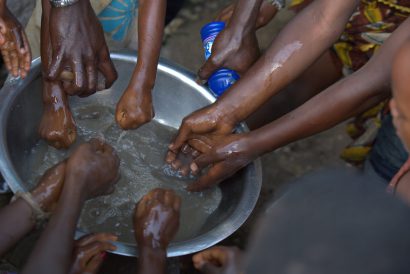Tag: Sanitation
Sharing of experiences and thoughts on addressing climate change impacts on sanitation at a local level are critical to evolving the sanitation sector. SDG 6.2 calls for sustainable sanitation for all before 2030. Yet over 2 billion people still lack access to basic sanitation facilities. Ensuring good sanitation and hygiene practices for everybody means ending… Read more
This annual review assesses the outputs of the Increasing sustainable access to water, sanitation and hygiene (WASH) in the Democratic Republic of Congo (DRC) programme, and how they contribute to expected outcomes and their sustainability. The review also includes updated recommendations for improving integration of gender into WASH programming and assesses the implementation of the… Read more
This report, part of WSUP’s Urban Sanitation Research Initiative, explores the background to the urban sanitation sector in Ghana. Ghana is a fast-growing economy that has made notable progress in reducing poverty but urban infrastructure has not kept pace with cities’ expansion and high levels of rural-urban migration. Only a fraction of urban residents use… Read more
This is one article in a four-part PLoS Medicine series on water and sanitation. Summary Points 2.6 billion people in the world lack adequate sanitation—the safe disposal of human excreta. Lack of sanitation contributes to about 10% of the global disease burden, causing mainly diarrhoeal diseases. In the past, government agencies have typically built sanitation… Read more
The following section provides an executive summary of this paper, highlighting the key findings in relation to the priority areas identified by DFID. The paper sets out the methods for this review and the approach for assessing the strength of evidence. The different bodies of evidence reviewed in this paper have been graded as ‘good’,… Read more
This report provides information on which methods have worked well to improve access to education for girls in Islamic countries. The report covers the following areas: Conditional cash transfers to girls- Evaluation results from programes include examples from Bangladesh, Punjab, Yemen and Nigeria. All showed increased female enrolment. Women teachers increasing girls’ attendance- Information was… Read more
The multiple ways in which water, sanitation, and hygiene education in schools (WASH in Schools) contributes toward education – including attendance, retention and learning – is fairly well documented. When children have access to clean and appropriate toilets, hand washing facilities, adequate and clean water they are healthier, are more likely to attend school regularly,… Read more




